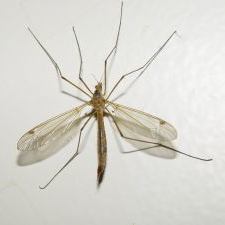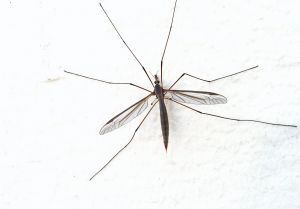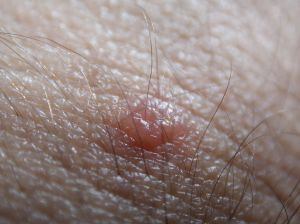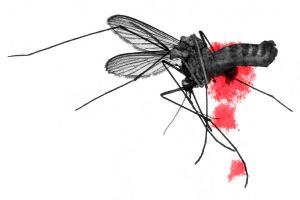Travel Tips
Dengue Fever Outbreak Hits Florida: South Up Next?
 Dengue fever, a mosquito-borne disease that is endemic in tropical areas, has emerged in Florida, raising concerns that the disease could gain a foothold in the continental U.S. and spread to other parts of the southern United States.
Dengue fever, a mosquito-borne disease that is endemic in tropical areas, has emerged in Florida, raising concerns that the disease could gain a foothold in the continental U.S. and spread to other parts of the southern United States.
At least 18 cases of the flu-like disease, also known as break-bone fever, have been reported in Key West this year. In 2009, there were 27 cases in the area. There have been no dengue-related deaths reported in Florida thus far.
The last time Florida saw an outbreak of dengue was in 1934, when more than 25,000 cases were reported.
In response to the rising numbers, Centers for Disease Control and Prevention and the Florida Department of Health recently conducted a study of 240 Key West residents which found that 13 showed evidence of exposure to the dengue virus.
The CDC issued a press release earlier this month announcing an estimated 5 percent of Key West’s population of more than 1,000 residents, may have been exposed to the virus. However, Florida officials have expressed their frustration over the CDC’s broad assessment based on a relatively small sample.
 While the actual numbers show little evidence that an epidemic is brewing, there is some cause for concern over the disease’s presence in the continental U.S.
While the actual numbers show little evidence that an epidemic is brewing, there is some cause for concern over the disease’s presence in the continental U.S.
Dengue is endemic in tropical areas such as Central and South America, Southeast Asia and the Caribbean. A recent rash of infections has reached near-epidemic levels throughout the Caribbean, including Puerto Rico, the Dominican Republic and Trinidad.
The common host mosquito is the Aedes Aegypti, known as the yellow fever mosquito. There are now host mosquitoes that can be found in 26 different states in North America, raising concerns that the disease may circulate in the continental U.S.
A smattering of cases have also been seen at the Texas-Louisiana border, and the Texas-Mexico border as the disease moves northwards with shifts in mosquito populations.
Learn more in our Travel Health & Fitness section
Fevers, joint, muscle, bone pain, rash, mild bleeding of nose/gums, abdominal pain, and trouble breathing are just a sampling of the symptoms associated with dengue fever. Such symptoms can escalate if the disease leads to a failure in the circulatory system, resulting in shock or death.
 When there exists more than one of the four types of Dengue viruses in one population, the risk of contracting Dengue Hemorrhagic Fever (DHF) or Dengue Shock Syndrome (DSS) increase. Unlike the chicken pox, prior dengue exposure increases your chances of contracting the more severe forms of the disease. It is estimated that of the 100 million affected yearly, about 500,000 contract DHF, and 22,000 result in death.
When there exists more than one of the four types of Dengue viruses in one population, the risk of contracting Dengue Hemorrhagic Fever (DHF) or Dengue Shock Syndrome (DSS) increase. Unlike the chicken pox, prior dengue exposure increases your chances of contracting the more severe forms of the disease. It is estimated that of the 100 million affected yearly, about 500,000 contract DHF, and 22,000 result in death.
Dr. Dennis E. Hruby, Ph.D., Chief Scientific Officer of SIGA Technologies, Inc., explains that lack of insect mosquito control, shifting mosquito populations, and shifting human populations. The 2,000 cases reported in Jaffna and Vavuniya, Sri Lanka, have been linked to the re-location of civilians following the end of their civil war in May 2009. Urbanization places people and mosquitoes closer together, increasing the chances of the viruses co-circulating.
Dengue was first documented in the Philippines and Thailand in the 1950s. The CDC now estimates more than 100 million cases worldwide annually, and more than 40 percent of the world’s population, 2.5 billion people, live in at-risk areas.
 Outbreaks in the US have traditionally been a result of travelers returning home from hotspots. Eric A. Rose, CEO and Chairman of the Board of SIGA Technologies, Inc., has seen cases in New York in people returning from vacations to Puerto Rico or St. Barts. Among U.S. citizens, Puerto Rico, U.S. Virgin Islands, Samoa, and Guam have the highest number of cases among U.S. citizens. There were outbreaks in south Texas in 2005, and in Hawaii in 2001.
Outbreaks in the US have traditionally been a result of travelers returning home from hotspots. Eric A. Rose, CEO and Chairman of the Board of SIGA Technologies, Inc., has seen cases in New York in people returning from vacations to Puerto Rico or St. Barts. Among U.S. citizens, Puerto Rico, U.S. Virgin Islands, Samoa, and Guam have the highest number of cases among U.S. citizens. There were outbreaks in south Texas in 2005, and in Hawaii in 2001.
Until a vaccine or antiviral drug is developed, the best way to avoid contracting the disease is to take preventative measures. Avoid stagnant water which can be a breeding ground for mosquitoes. Do what you would normally do to avoid mosquitoes: stay indoors, use air conditioning and windows or screens when possible, apply 20 percent to 30 percent DEET repellent, and wear light-colored, long-sleeved shirts and pants.
 Dr. Hruby points out that the mosquito that typically transmits this virus general bites in the daytime, but to be attentive at all hours.
Dr. Hruby points out that the mosquito that typically transmits this virus general bites in the daytime, but to be attentive at all hours.
If contracted, in addition to contacted a physician, the CDC also recommends using pain relievers with acetaminophen, such as Tylenol, TheraFlu or Advil, rather than aspirin-based pain killers which can increase the risk of bleeding, and staying hydrated with plenty of fluids.
By Jessica Kate Soberman and Sarika Chawla for PeterGreenberg.com.
Related links: CDC, Cambridge University Press, SIGA.com, Reuters, New York Times
Related links on PeterGreenberg.com:












